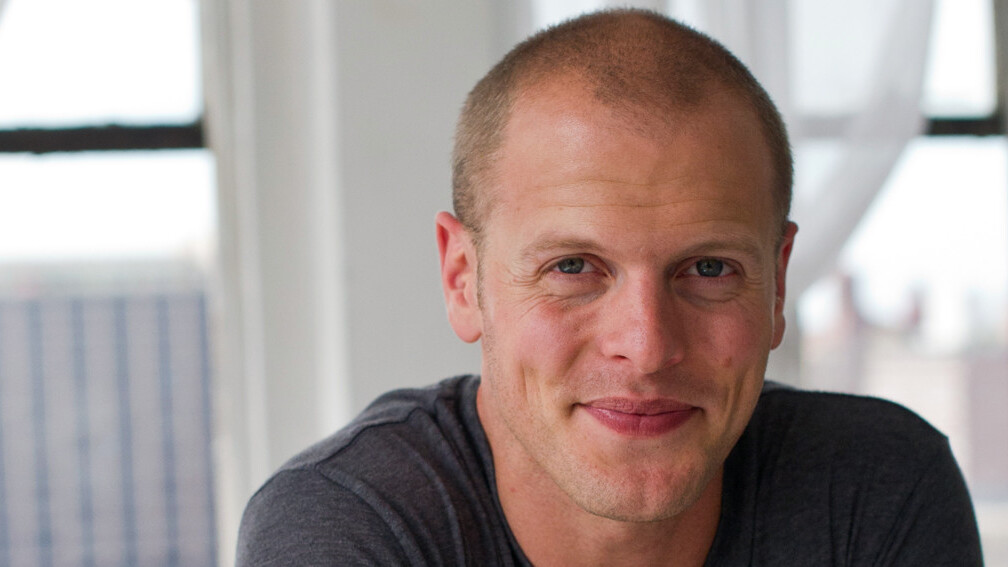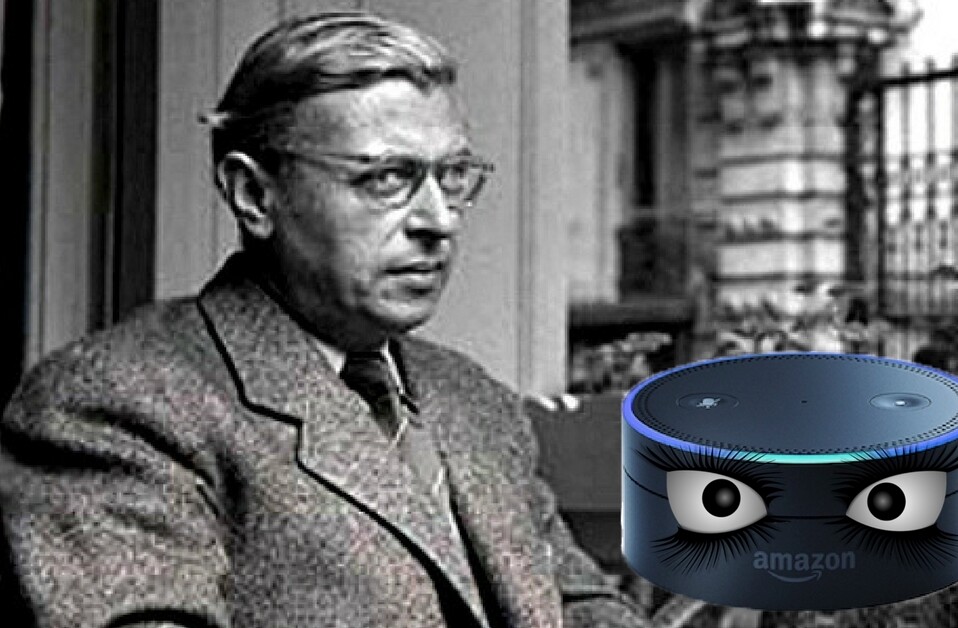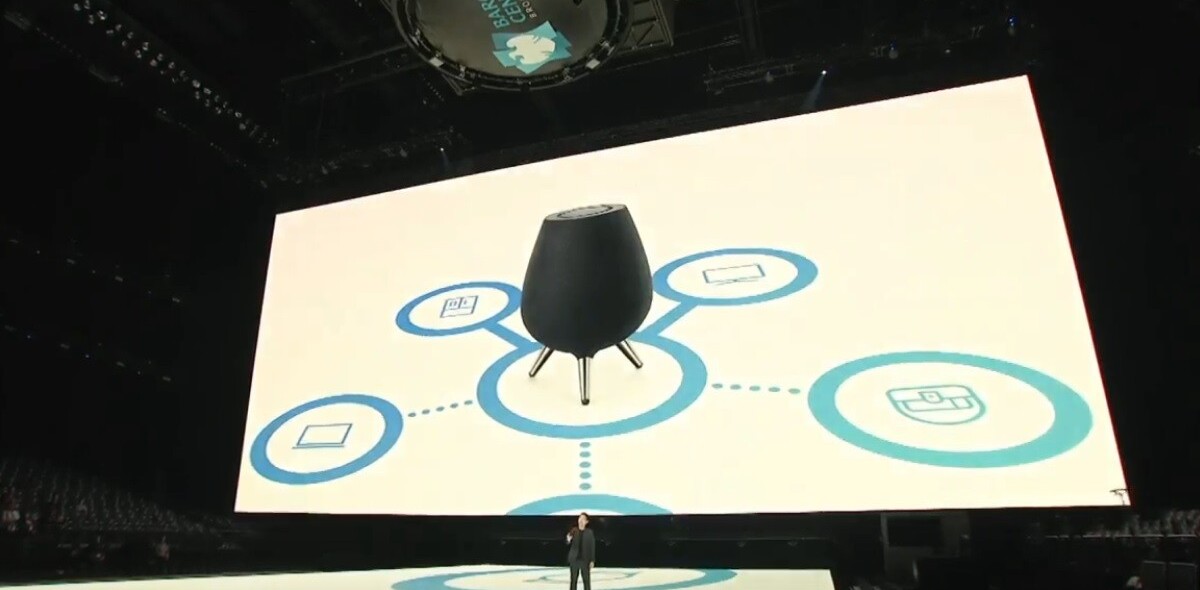
As the 2013 edition of The Next Web Conference Europe approaches, we’ll be announcing some of the speakers who will be joining us on the 25th and 26th of April.
The first name that we’re happy to reveal is none other than Mr Tim Ferriss.
Tim has made his name as the definitive 21st Century productivity guru. His first book, The 4-Hour Workweek, trained its readers to work smarter, not longer, and has been translated in 35 languages. It was followed by the health-focused The 4-Hour Chef: The Simple Path to Cooking Like a Pro, Learning Anything, and Living the Good Life
. As well as helping people get more out of their time, fitness and education, Ferriss is an angel investor who has put money into companies such as Facebook, StumbleUpon, Twitter, Evernote and Uber.
Today we run the first part of a two-part interview. Look out for part two at the weekend.
Join Tim Ferriss at The Next Web Conference Europe: book your ticket now.
I recently had dinner with Ferriss when he visited Manchester, UK to appear on the BBC’s Breakfast national TV show. I started off by asking him about the 4-Hour Chef. After tackling broad topics like work and health, isn’t cookery a of a bit niche topic? It turns out that there’s quite a bit more to it than that, with cookery used as an example for how to learn just about anything at a rapid pace.
 Tim: “The Four Hour Chef is a response to my readers and their requests for the last five years or so which have been really focused on accelerated learning and it turns out that writing about learning and language learning and so forth, in the abstract, is really boring to write and really boring to read.
Tim: “The Four Hour Chef is a response to my readers and their requests for the last five years or so which have been really focused on accelerated learning and it turns out that writing about learning and language learning and so forth, in the abstract, is really boring to write and really boring to read.
“I needed a context, just like Zen and The Art of Motorcycle Maintenance, So I used cooking which had kicked my ass many times, over the last few decades, as a case study to show how someone who’s very insecure about something they perceived as difficult, could go from zero – ground zero – to hopefully the top five percent in the world or so in 6-to-12 months.
“The book is a ‘Choose Your Own Adventure’ book and a guide to rapid learning whether that’s cooking which certainly I teach obviously and I was very fortunate to have a lot of the world’s top chefs collaborate with me. Or things like playing chess, professional sports, shooting basketball. Anything you can imagine is pretty much covered in the book. The source of the inspiration is definitely my readers.”
TNW: What I find interesting is the idea of Meta Learning which kind of underpins the whole book. Could you tell us a bit about that?
Tim: “Meta Learning is the act of learning how to learn, much like meta-analysis is doing an analysis of multiple studies or multiple analyses. If you think about it, as one example, we’re never really taught how to read properly in school. We’re taught the alphabet but we were not taught how to best, let’s say, control our eye movements and getting into that detail is very easy to triple or quadruple your reading speed in ten to 15 minutes. It’s really, really easy.
“The same is truth for breath-holding, swimming, even language-learning and there is a blueprint which is this process of Meta Learning that can be applied to all of these things whether you’re trying how to sear a steak or how to speak Spanish. The process is the same and that was really pulled from trying to emulate the world’s fastest learners. Whether a chess prodigy named Joss Waitzkin or a guy named Daniel Tammet, in the UK, who’s nicknamed Brainman, or many others.
“The general process is ‘DiSSS’ (Deconstruction, Selection, Sequencing, Stakes) and this was arrived at after more than a decade of experimentation. I started off in neuroscience at Princeton University, focusing on the different training methodologies that can be used to increase aspects of attention specifically. I’m actually helping to fund research at USCF in San Francisco right now.
“Then I moved to smart drugs, and then I looked specifically at language acquisition and moved to, immediately after school, working for Berlitz International redesigning their Japanese English curriculum.
“I’ve been trying to find this unified theory of learning for a long, long time but it’s always been something that worked for, let’s say, Spanish but then didn’t work for Japanese. It’s something that worked for languages but didn’t work for sports.
“There are two frameworks, ‘DiSSS’ and then ‘CaFE’ (Compression, Frequency, Encoding), and I have found they apply to everything – so that’s the main recipe of The 4-Hour Chef.”
TNW: Your three books have been very much about self-improvement through various methods. Do you think that techniques like Meta Learning could be applied to education systems or whole companies? Do they scale beyond personal use?
Tim: “I do think they scale. I think that the DiSSS process, for instance, or even CaFE can be applied to education systemically. Actually, it has a lot in common with Agile software development and Lean Startup methodology. Eric Reis is a friend of mine so this experimental, iterative approach would be, if you look at something within startups, like a Net Promoter Score that a lot of startups use to evaluate how well they’re doing or how much their fans would dislike their service going away.
“There are many, many parallels between that and the methodology I recommend for deconstructing skills because at the end of the day, it’s deconstructing a complex problem or a complex topic. That could be serving and giving a marketing need; it could be building and scaling a company from ten to a 100 people or to 1,000 people. It can also be applied to education.”
TNW: Do you think we will actually see companies built around your methodologies?
“I think it’s most likely that we’ll see employee training programs or management training programs adopt the frameworks in the book first. Whether startups then use it from the ground up – let’s say blueprint how to design a product for specific market that they’ve pre-identified – it’s probably more likely to come from The 4-Hour Work Week or the 4-Hour Chef. But, I think, certainly for any type of employee or executive training, it could be applied.
“I think that in many ways, even though they certainly didn’t borrow it from me, if you look at how LivingSocial trains some of its non-programmers to become programmers, it’s amazing the school they’ve built to do that. A lot of the concepts are exactly what I describe in The 4-Hour Chef.”
TNW: Wherever I go around the world, I always seem to bump into people who’ve read at least one of your books and say how great your techniques are. What kind of stories do you get from people, what are some of your favorites?
“The only reason I’ve continued to write is because of the reader feedback. The success stories from the readers are really the most important success metric for me, certainly. I just got one today, I was actually reading it on the train here. I got an email from a guy who’s lost; he’s just about to pass 200 pounds lost of the slow carb diet in The 4-Hour Body so he’s at about 195 pounds. He sent me an email in bullets of how his life has changed because of that loss.
“The 4-Hour Body feedback and case studies of people, let’s say parents or single mothers with two or three kids who travel around the world and are making better income than they did beforehand are very inspiring, but the ones that most recently have really impacted me are the ones where people have reversed fatty liver disease or are no long insulin dependent as diabetics or have, let’s say, taken the principles and helped their parents lose 50 or 150 pounds.
“In their words, not mine, they’ve reclaimed ten or twenty years of lifespan. It’s hard to beat that. Those are huge.
“Then there are the really unusual ones. I remember when The 4-Hour Work Week first came out and I got an email from someone who started the email with ‘You don’t know me but…’ and then finished with, ‘all the best, Marc Andreessen.’ I replied back and said, ‘I know who you are.’ Those are always fun certainly. He’s such an icon to me and such a role for me in so many ways that it’s really humbling and gratifying when people like that take the trouble to read, even a chapter, of one of your books.”
TNW: Your books have been part of the trend in recent years which could be called the Cult of Productivity – productivity apps, productivity books. People really looking for smarter ways to do things. Why do you think that seems to have taken off in the last years?
“I think that tools for productivity have taken off in the last few years primarily because the tools themselves make it easier to measure things and the barrier to entry to create a tool for iOS and sell it through iTunes are much lower than, say. developing such a tool for a console or even local desktop computer software.
“A lot of it is very good, I think there are some fantastic apps out there right now. I’m an advisor to Evernote and have been for quite a few years and it’s tremendously helpful because it decreases my cognitive burden.
“I think that if I could change one thing about productivity apps per se, I would make them more focused on helping people to be effective, i.e., to do the right things as opposed to being efficient, which is simply doing things faster which does not automatically make something important. The problem is that it’s much harder to help with the former than the latter. But there are some great apps that build awareness of how you use time and they are in and of themselves oftentimes as important as apps that attempt to train you to use your time more intelligently.”
Look out for part two of this interview on The Next Web on Saturday, where Tim Ferriss discusses the latest tech-driven trends in book publishing and his approach to startup investment.
Join Tim Ferriss at The Next Web Conference Europe: book your ticket now.
Disclosure: This article contains affiliate links. While we only ever write about products we think deserve to be on the pages of our site, The Next Web may earn a small commission if you click through and buy the product in question. For more information, please see our Terms of Service.
Get the TNW newsletter
Get the most important tech news in your inbox each week.




